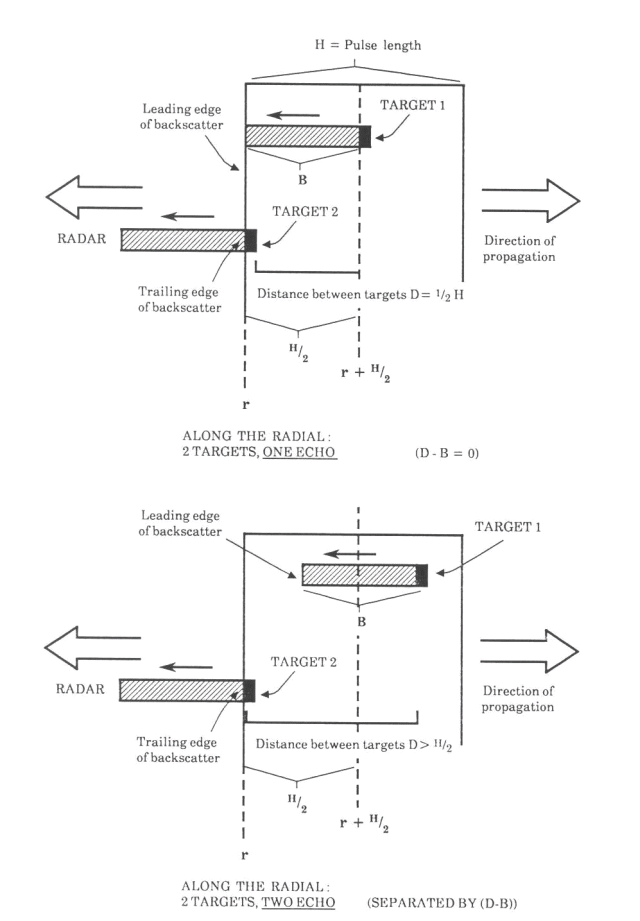Range Resolution
Because of range distortion, targets along the same
azimuth must be separated by more than one-half pulse length to be
displayed separately. This minimum radial separation defines the range
resolution of the radar.

Figure 1. Radar Range Resolution
Figure 1 illustrates radar range
resolution. The radar emits a pulse which travels along a radial and
illuminates two point targets spaced one half pulse length apart. The
power backscattered by target 1 a range R + H/2 from the front of an
outgoing pulse of length H will arrive at the radar at the same time as
the power backscattered by target 2 at a range R from the rear of the
same outgoing pulse. In this case, the two targets appear as one
continuous echo. Had these targets been separated by more than ½ H, two
echoes would have appeared on the radarscope.
Range resolution is solely a function of pulse length.
Distortions of target coverage and separation due to range resolution are small and are probably most significant when the precipitation targets are small, closely-spaced convective cells.
|
Term |
Reference |
| Pulse length |
Length or time |
| Pulse width |
Time or length |
| Pulse duration |
Time
|